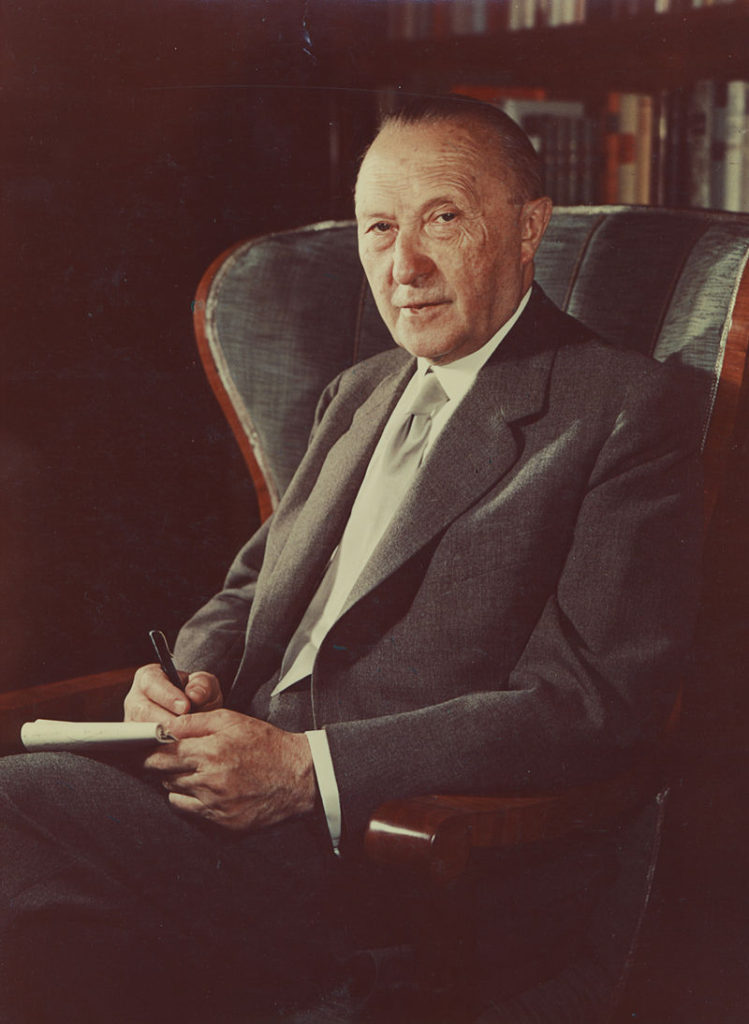Chancellor Adenauer on Jewish Power
“The power of the Jews even today, especially in America, should not be underestimated.” – Konrad Adenauer, 1965.
A recurring theme in my writing is documenting the comments of mainstream European statesmen on Jewish power and influence. Given my background, this has primarily focused on French leaders. In general, as these figures approach retirement or indeed death, their tongues loosen somewhat.
In the aftermath of the Six Day War, General Charles de Gaulle publicly called the Jews “an elite people, self-confident, and dominating” and, almost in passing, noted that the Israelis enjoyed “vast support in money, influence, and propaganda [. . .] from the Jewish circles of America and Europe.” Though largely forgotten today, Jewish groups then widely attacked De Gaulle, claiming his comments would lead to “discrimination,” and even Raymond Aron, the otherwise unflappable critic of Jewish ethnocentrism, lost his composure.
Other top French politicians have complained of suffering from pressure and defamation at the hands of ethnocentric Jewish media-political networks. This is, in a word, the unmentionable “lobby-which-doesn’t-exist.” Prime Minister Raymond Barre, nearing the end of his life, spoke out on the radio: “The Jewish lobby, not only concerning myself, is able to organize operations which are disgraceful. And I want to say it publicly!” President François Mitterrand spoke in private, on his last day in office, of “the powerful and harmful influence of the Jewish lobby in France.” Read more







